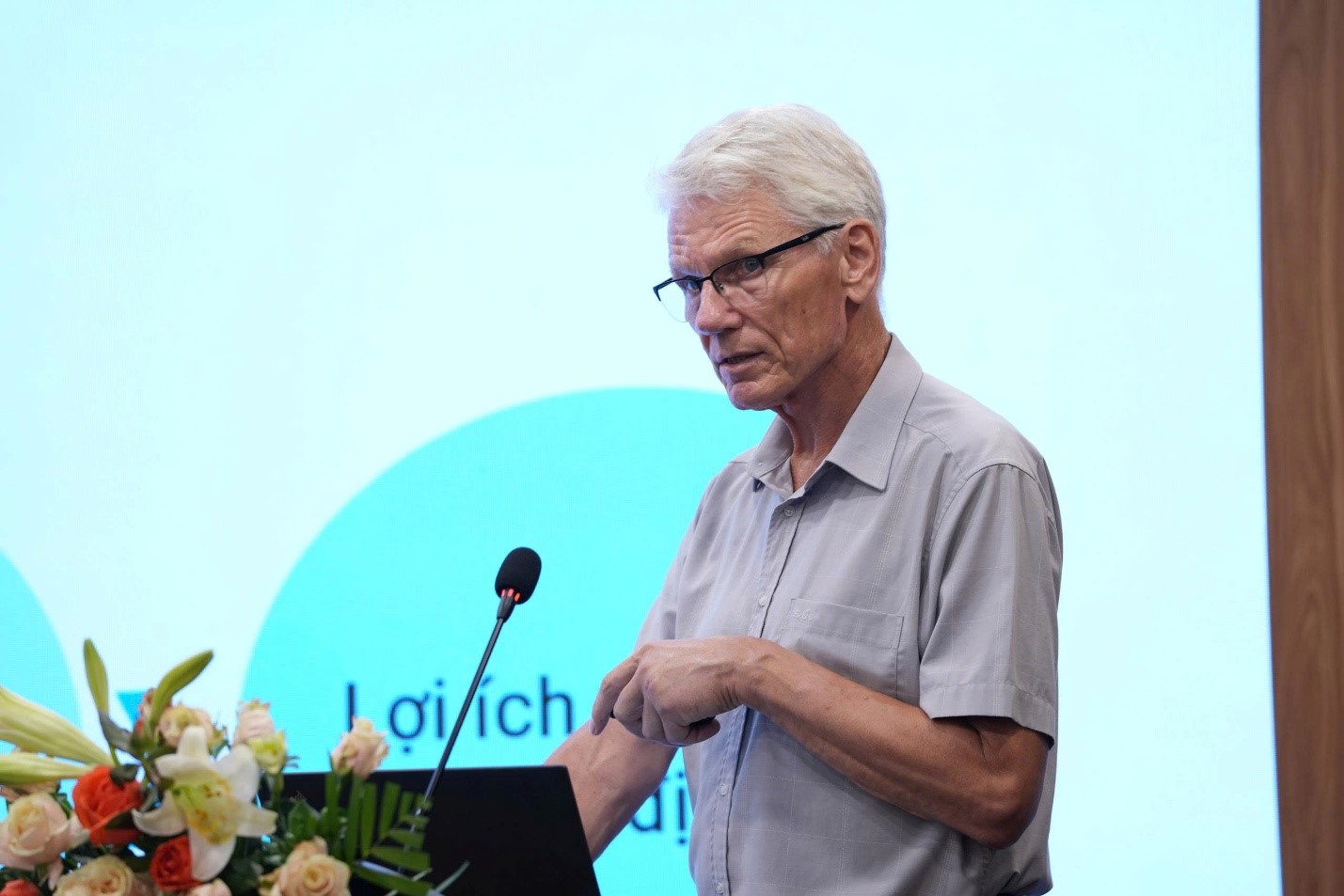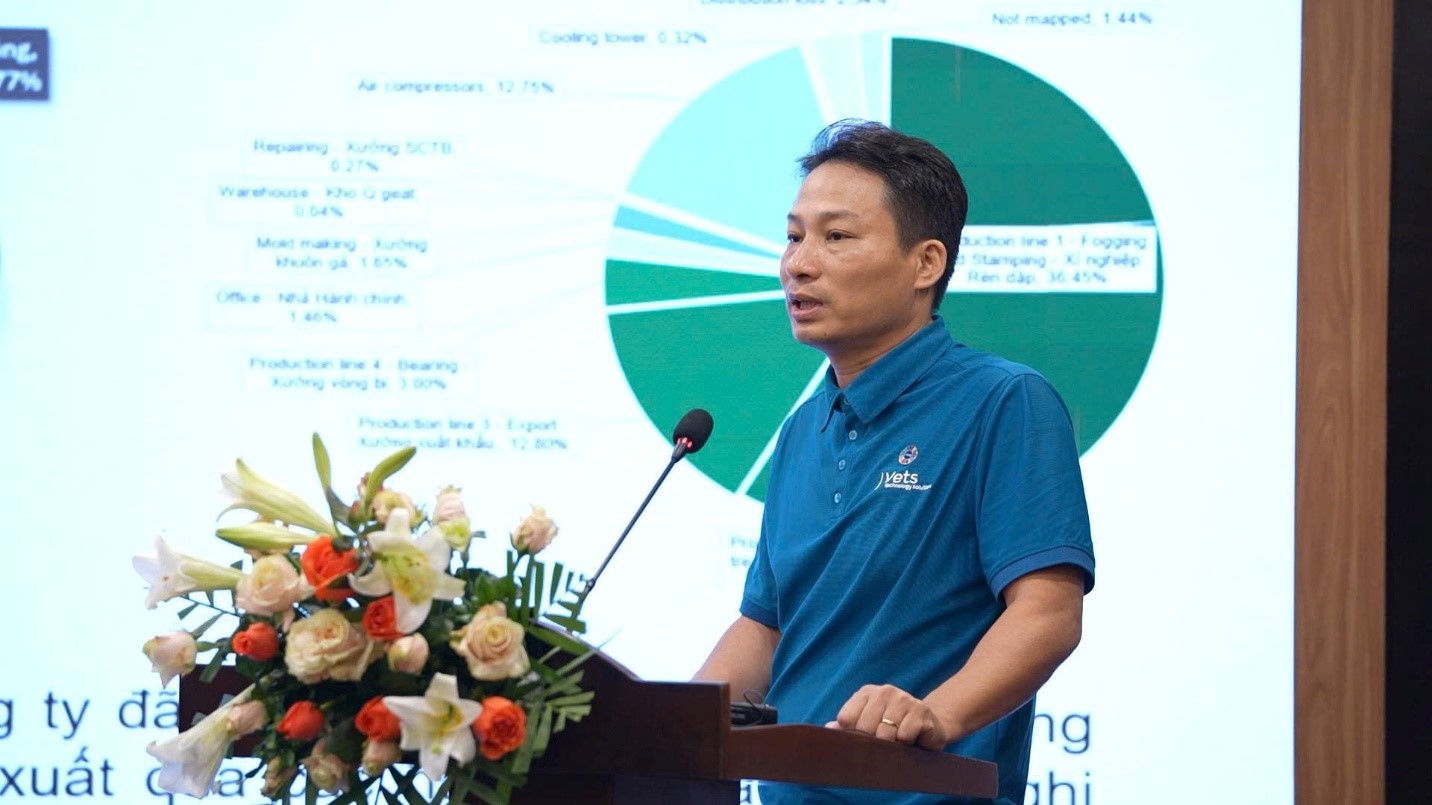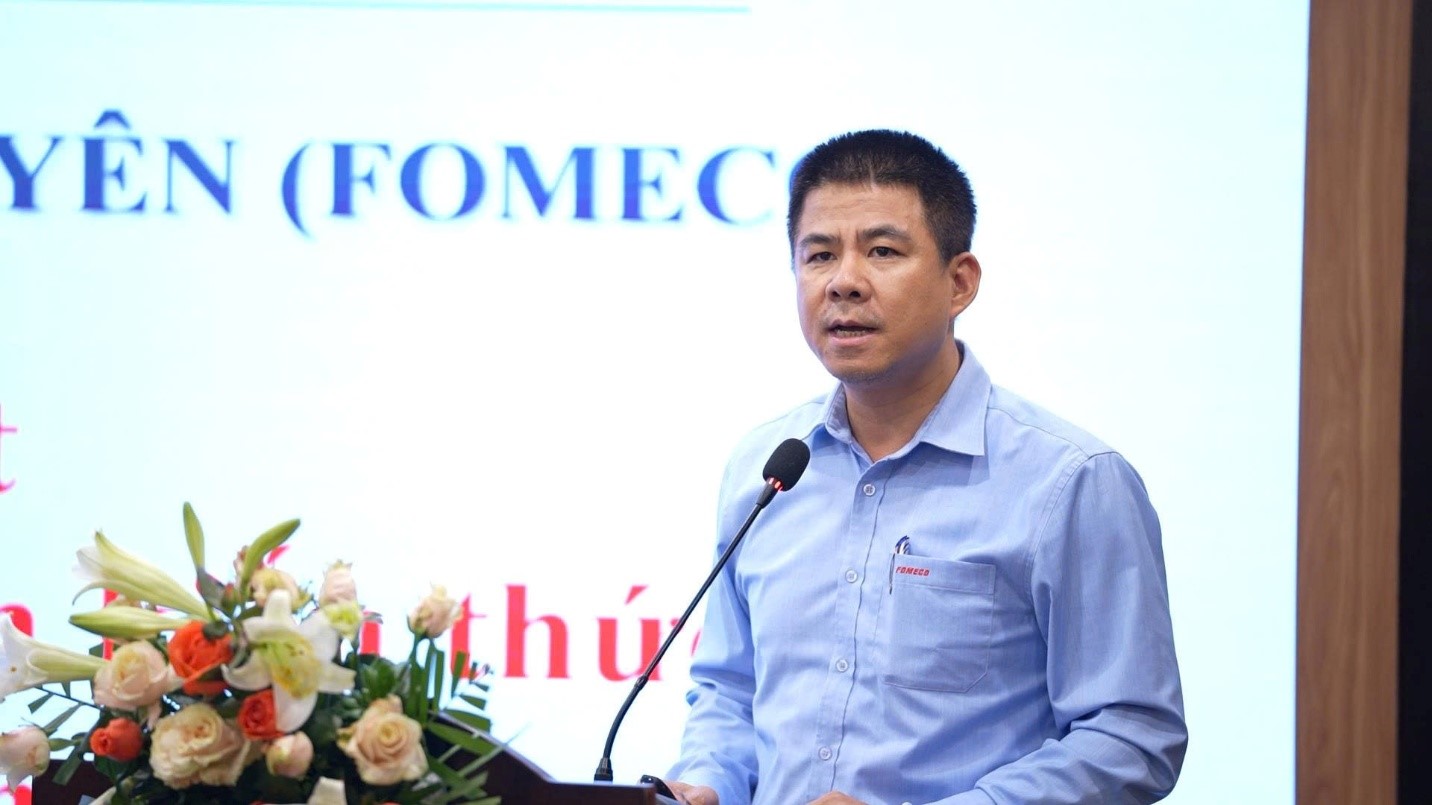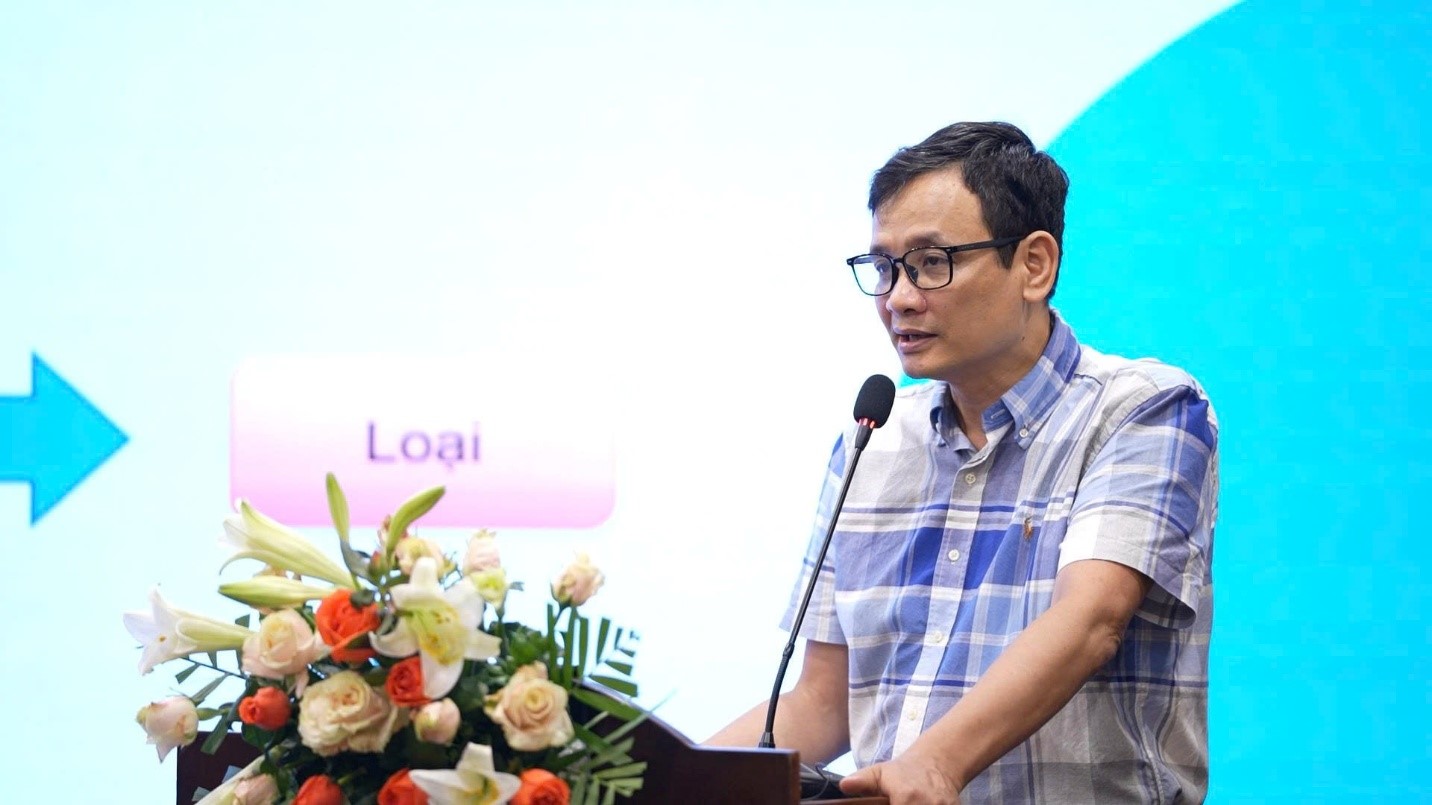On June 17 and 19, 2025, the Ministry of Industry and Trade (MOIT), in collaboration with the Danish Energy Agency and the Embassy of Denmark in Vietnam, organized a series of technical seminars on “Demonstration Energy Audits” for energy-intensive industries in Vietnam. This series of seminars were held within the framework of Component 3 of the Energy Partnership Programme between Viet Nam and Denmark for the period 2020–2025 (DEPP3).
These were the opening events in a series of seminars designed to share key findings and experiences from the implementation of demonstration energy audits conducted under international standards within the Voluntary Agreement Scheme (VAS). Held in Hanoi and Ho Chi Minh City, the two seminars focused on sharing experiences in developing energy efficiency projects across the paper, mechanical, aquaculture, and textile industries.
Speaking at the seminar, Ms. Nguyen Thi Lam Giang – Director General of the Agency for Innovation, Green Transition and Industrial Promotion, affirmed: “Energy auditing is considered a crucial technical solution and the first step for industrial enterprises to gain a clear understanding of their energy consumption , thereby identifying opportunities and potential for energy efficiency. Especially for the paper and mechanical industries, which are characterized by complex production processes and energy-intensive equipment, energy auditing is particularly essential to optimize production efficiency and reduce costs.”
Ms. Nguyen Thi Lam Giang, Director General of the Agency for Innovation, Green Transition and Industrial Promotion, delivering the opening remarks. Source: DEPP3
Identification of 93 energy efficiency projects
Mr. Jorgen Hvid, Long-term Advisor to DEPP3 Program, provided an overview of the program’s activities aimed at promoting energy efficiency projectsand improving energy efficiency in the industrial sector through prominent initiatives such as the Voluntary Agreement Scheme (VAS) to promote economical and efficient energy use in the industrial sector, and the Center of Excellence (CoE) for Energy Efficiency model. These two key components provide technical support and capacity building for enterprises, auditing units, and other stakeholders, with the aim of turning energy efficiency ideas into practical projects.
Mr. Jorgen Hvid, Long-term Advisor to DEPP3 Program. Source: DEPP3
The demonstration energy audits under DEPP3 Program have been conducted at numerous key energy-consuming industrial enterprises. These audits focused on detailed analysis of energy usage, identification of potential for energy efficiency optimization, and propose suitable technical solutions to the particular conditions of each enterprise.
Mr. Hoa Thai Thanh, Vietnam Technology Solutions Joint Stock Company, representing the energy audit unit, shared some findings from performing demonstration energy audits. Source: DEPP3
Sharing preliminary results, Mr. Rahul Raju Dusa, Special Advisor at the Danish Energy Agency – noted: The Program has so far identified a total of 93 energy efficiency projects, with 62% related to electricity and 38% to thermal energy. Through these projects, the potential for energy efficiency is identified at up to 194.5 GWh per year, with the majority stemming from thermal energy (80%) and the remainder from electricity (20%).
Implementation of these measures not only yields energy efficiency but also contributes to greenhouse gas emission reduction, with estimated potential annual emission reduction of approximately 73,646 tonnes, 59% of which are associated with thermal energy and 41% with electricity.
Numerous proposed solutions
At the seminars, enterprises participating in the VAS Program and domestic auditing units highly appreciated the involvement of international consultants in providing capacity-building training for energy audits and in developing pre-feasibility and feasibility studies.
Mr. Dao Duy Duc, Pho Yen Mechanical Joint Stock Company (FOMECO), shared experiences in energy auditing in the mechanical industry. Source: DEPP3
Many opinions suggested the early introduction of energy mapping tools and clear guidance on data collection methods to ensure accuracy and comprehensiveness in the mapping process and evaluating energy efficiency potential. Furthermore, continued technical support in subsequent phases, along with access to suitable financing sources, was identified as crucial for the effective and sustainable implementation of identified solutions in enterprises.
Within the framework of the seminars, experts also spent time discussing technologies and customized technical solutions for each industrial sector. For audit projects in the mechanical industry, a series of recommended technical solutions aimed at production efficiency and energy use optimization included: installation of modern medium-frequency furnaces, cold stamping technology, and rooftop solar power systems. In the paper industry, some initial high-promising solutions identified included: adjusting flue gas oxygen levels in boilers, replacing small low-capacity boilers with high-capacity ones, and utilizing waste heat.
Mr. Nguyen Xuan Quang, Enervi Viet Nam Energy and Environment Joint Stock Company, discussed solutions to improve energy efficiency in the paper industry. Source: DEPP3
In the aquaculture industry, the implementation of energy audit projects under international standard has shown that the potential for energy efficiency in enterprises is still very large. A total of 16 potential solutions were identified, varying in investment levels and technical complexity. In addition to simple technical solutions such as equipment insulation, inverter installation, and leakage repair, experts recommended conducting feasibility studies on some solutions in the next phase such as renovating steam supply systems and replacing piston compressors with screw compressors.
In the textile industry audit project, 12 energy efficiency solutionswere proposed, mainly classified as Level B solutions – low-investment, easy-to-implement options focused on simple technical improvements that deliver immediate benefits. These included: compressed air leakage prevention programs, inverter control optimization for air compressors, boiler optimization, and exhaust gas humidity control system optimization in calendering machines.
Beyond enterprise-specific technical measures, several recommendations were made to enhance the ability to monitor and track energy efficiency across industries, such as: implementation of ISO 50001-compliant energy management systems; installation of integrated heat and gas metering systems; and establishment of energy consumption benchmarks for factories and production lines.
Participants devoted considerable time to discussing key practical challenges in implementing energy efficiency solutions in enterprises. The seminars also generated valuable recommendations to scale up international-standard energy audits and enhance cooperation among regulatory authorities, experts, and the business community in the journey toward green and sustainable development.
Reference materials and photos from the seminars are available at:
- Seminar for the paper and mechanical industries:
Documents – Images- Seminar for the aquaculture and textile industries:
Documents – ImagesDEPP3 Program






